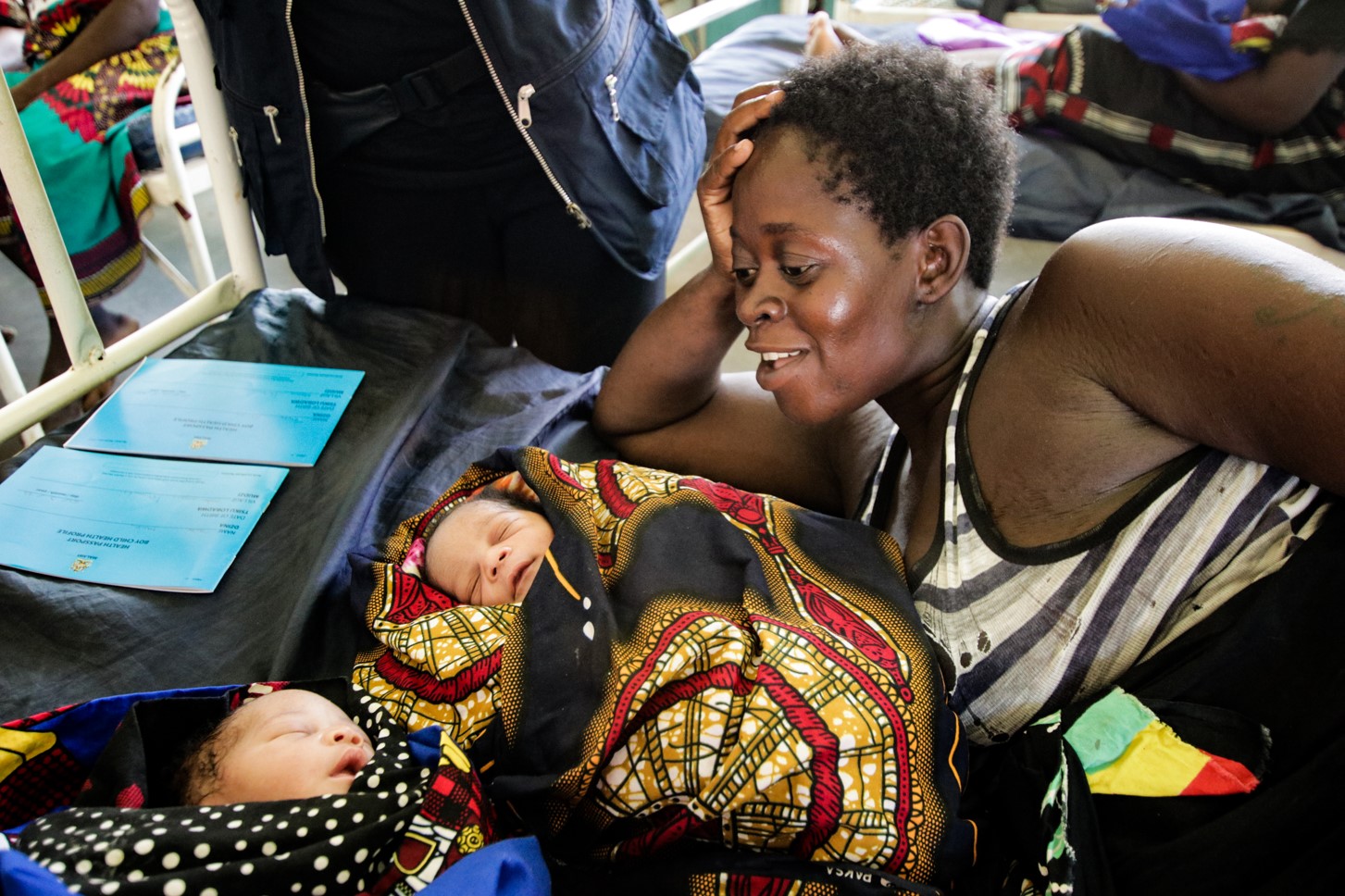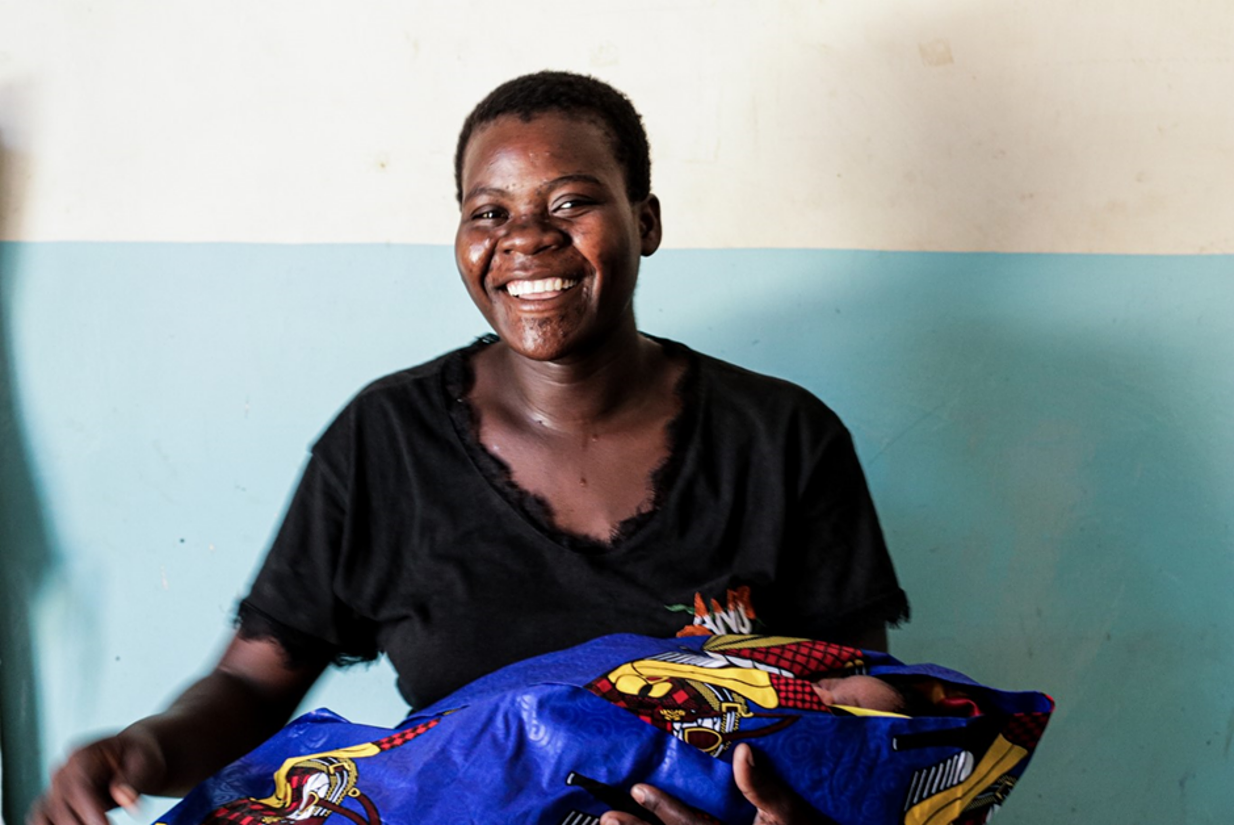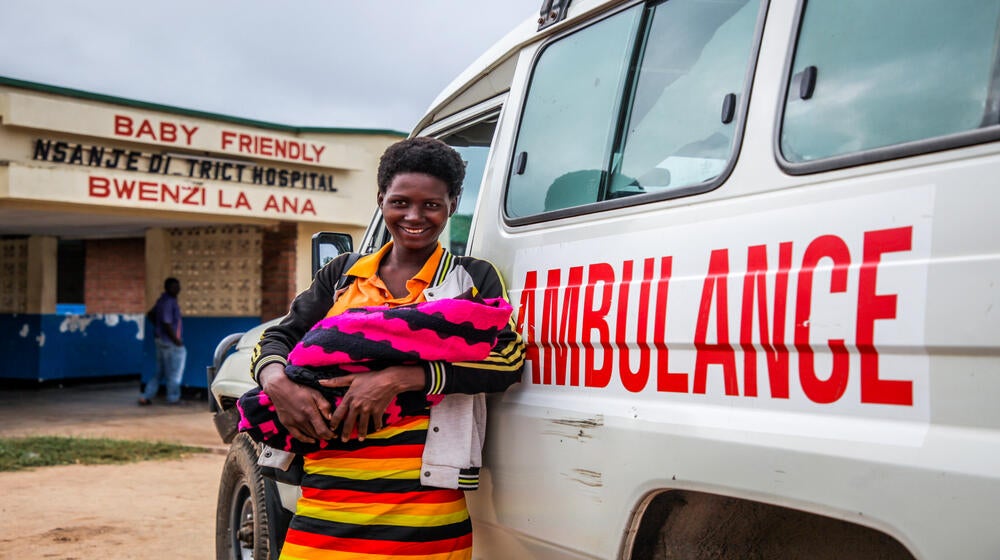Nsanje, MALAWI- “After having given birth four times, I thought I knew it all,” says Mercy Chintengo (37) from Marka in Nsanje. “But this pregnancy was something else. I was growing so big and even failing to walk!”
Ms. Chintengo didn’t know that she was carrying twins. She only got to know the news when she visited her local health centre after her labour had started. However, her happiness was short lived. The health staff told her that they couldn’t do the delivery at the health centre as they had no electricity.

For two weeks, Ndamera health centre operated without power after Tropical Cyclone Freddy had ripped apart the transmission infrastructure. The main district hospital was the only one better equipped to help Ms. Chintengo deliver safely as they had back up power.
But again, Ndamera health centre had no ambulance of its own. Ms. Chintengo had to either walk about 40 kilometres to the hospital or ride on her husband bicycle. But all the options were not feasible considering she was in deep pain. The only viable option was to call for an ambulance from the district hospital.
“The news of twins was exciting and bit scary at the same time,” said Ms. Chintengo. “I couldn’t wait to hold the babies in my hands but I knew I had to deliver safely first. But there was no ambulance to take me to the main hospital.”
By a stroke of luck, an ambulance for the district health office that had just been serviced, with support from UNFPA had just returned from the garage. It was immediately dispatched to Ndamera health centre, where Ms. Chintengo was now temporarily admitted.
The two hour journey to the district hospital was never smooth, but they made it safely. Ms. Chintengo was ushered in the maternity ward, and that same evening she delivered two healthy boys.
I am so grateful that I had a safe delivery. I don’t know what could have happened if the ambulance didn’t come in time.
Just after dropping Ms. Chintengo, the ambulance was immediately called to service again. The hospital got a call from one of the sprouting camps for the displaced alerting them of another pregnant woman in need of transport services. This time, the distance was not that far from the hospital, but the woman was already in labour and required immediate assistance.
The expectant mother, Kerita Rabson, had earlier in the day took part in an event where UNFPA was distributing dignity kits. She never thought she would go into labour that soon.
“We are living rough at the camp,” said Ms. Rabson who indicated that she had two weeks left to reach nine months. “We sleep on bare ground and the rainy season is still with us. I think these conditions contributed to my early labour.”
Ms. Rabson delivered safely and she thanks the health staff for reacting fast when they called for an ambulance. She also thanked UNFPA for the dignity kit.

“My husband had a stall in the market and it was blown off by the winds. Now, he has nothing,” She told UNFPA. “If it wasn’t for the items from the dignity kit, I couldn’t even have afforded to look this smart.”
The cloth from the dignity kit is what Ms. Rabson is also using to keep her child warm.
In February, Nsanje District Hospital delivered 325 babies. However, in March, the number increased as the hospital delivered 390 babies.
As part of its Tropical Cyclone Freddy response, UNFPA through the Umoyo Wathu programme has supported the district hospital to service four ambulances that were grounded. This included buying new tyres, batteries and paying for the mechanical services. In addition, UNFPA has also procured fuel for the main hospital back-up generator to provide uninterrupted power. This has allowed for continuity of critical services such as caesarean section at the maternity ward.
The Umoyo Wathu programme supports a package of system strengthening initiatives at the district level across maternal, neonatal and child health services and has a component to strengthen preparedness and response. It is funded by the Foreign, Commonwealth and Development Office (FCDO).
By Joseph Scott, Communications Analyst


